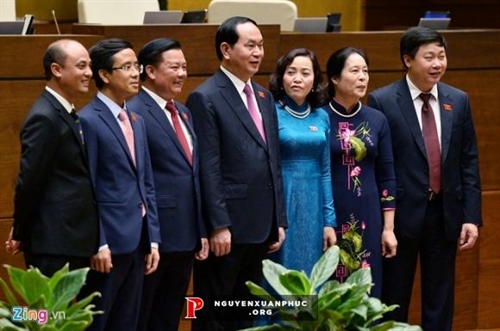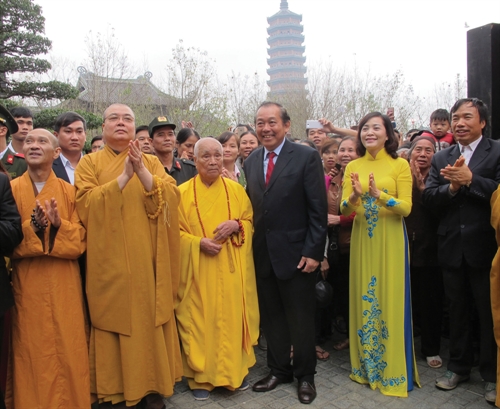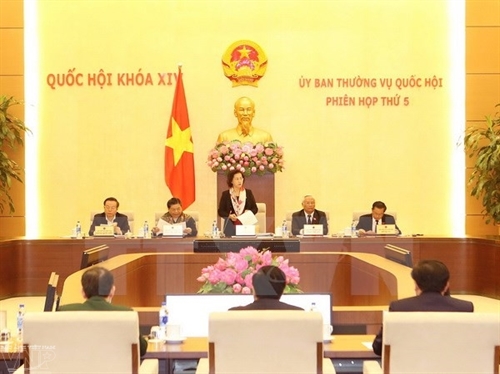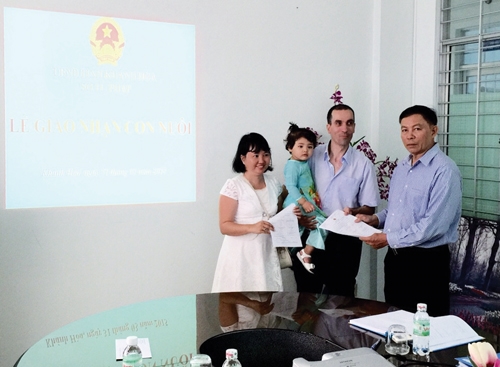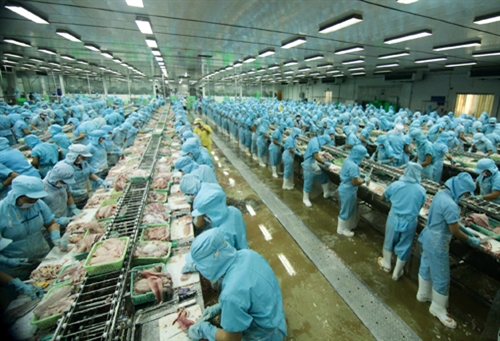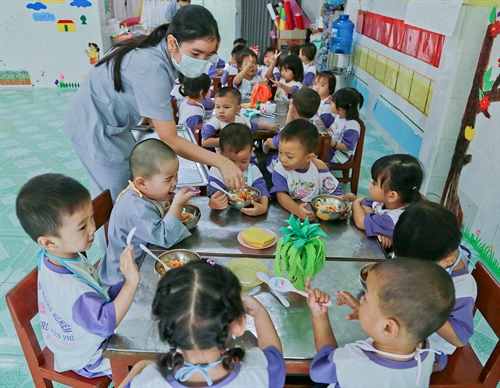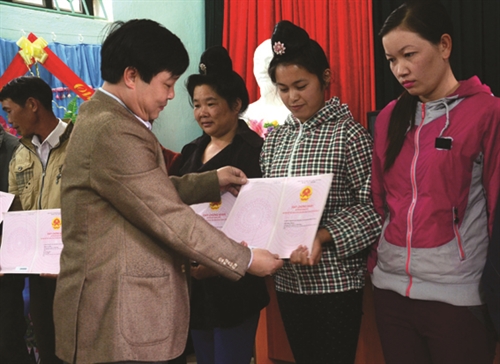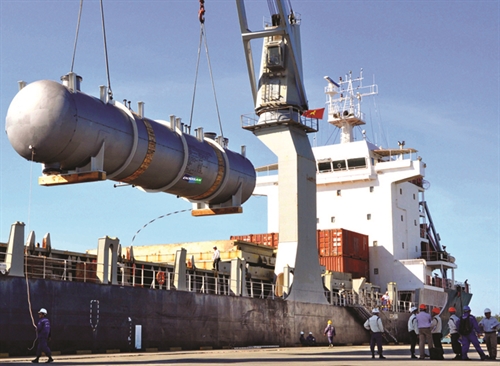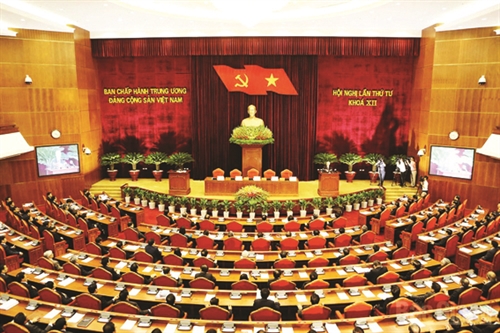Turning tourism into a spearhead industry has been set as a strategic goal under a resolution issued by the Political Bureau early this year.
Resolution No. 08-NQ/TW released on January 1, 2017, views development of tourism into a spearhead industry as a boost for development of other industries, noting, however, that all provinces should not necessarily regard tourism as a key industry.
The document takes stock of encouraging achievements of the tourism industry over the past 15 years, with foreign tourist arrivals annually growing at over 10 percent and domestic arrivals at nearly 12 percent. In 2016 alone, foreign tourist arrivals reached 10 million, over 4.3 times the number of 2001, and domestic arrivals hit 62 million, 5.3 times that of 2001. The industry directly contributed 6.8 percent to the country’s gross domestic products (GDP) and indirectly 14 percent. Tourism infrastructure facilities were developed while tourism products and services were diversified. The quality and professionalism of tourism were incrementally improved.
But it also pointed out the industry’s existing problems and limitations, including unattractive tourist products, poor-quality tourist services, ineffective state management, unqualified human resources and weak tourism businesses.
The Political Bureau attributes these problems to the absence of appropriate national policies for tourism development as a key industry operating under market rules. It also blamed on lax coordination among sectors and regions in tourism development, thinned-out investment and undue attention to training and development of human resources for tourism.
According to the Resolution, tourism must be developed into a general service industry in an inter-sectoral, inter-regional, concentrated, effective and competitive manner with a national brand and deep cultural traits. Connection between tourism and other industries should be increased in the value chain to form tourist products.
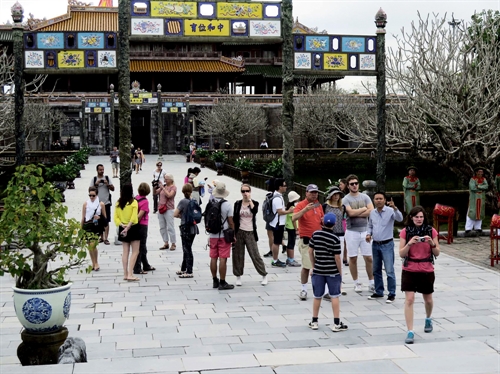 |
| Foreign tourists visit Hue imperial citadel in Thua Thien-Hue province__Photo: Quoc Viet/VNA |
The Resolution stresses the need to develop both inbound and outbound tourism, ensuring convenience for national and foreign tourists to explore landscapes and natural and cultural heritages of the country, and to respect and equally treat visitors from all over the world.
It attaches importance to developing tourism in a sustainable manner, conserving and promoting cultural heritages and fine values of the nation, protecting the environment and nature, and maintaining defense, security and social order and safety.
Tourism development is the responsibility of the entire political system and society, stressing the role of the business community and people as well as concentration of national resources for tourism development, the Resolution says.
It sets the target of making tourism basically a key industry with professionalism and modern and adequate physical and technical facilities, creating a motive for socio-economic development. The tourism industry is expected to turn out regionally competitive diversified products with high quality and national brands and cultural identity. By 2020, the industry is forecast to attract 17-20 million foreign arrivals and 82 million domestic visitors and to generate a total revenue of USD 35 billion, accounting for over 10 percent of GDP. The industry is hoped to create 4 million jobs, including 1.6 million direct ones. By 2030, tourism is set to truly become a key industry, making Vietnam a leading tourist country in Southeast Asia.
To achieve these targets, the Resolution sets out eight tasks and solutions the first of which is renewing thinking about tourism development. Tourism should be seen as an inter-sectoral and inter-regional service industry with deep cultural traits which can largely contribute to developing economic activity, creating jobs, transforming the economic structure and boosting development of other industries. Tourism development must follow market economy rules consistently from its vision, goals to action plans.
Second is restructuring the tourism industry to ensure its professionalism, modernity and sustainable development under market economy rules toward international integration. The industry will be restructured to conform with the country’s general economic development. A plan for tourism restructuring will be developed in the direction of prioritizing tourism infrastructure building; linking input value chains of industries; focusing on highly competitive sea, island, cultural, spiritual, ecological and community tourism; renewing the methods and increasing effectiveness of tourism promotion; and ensuring a secure and civilized tourist environment.
Provinces and cities with potential and advantages for tourism development must early develop their local tourism restructuring plans, the Resolution says.
Third is improving institutions and policies under which the legal system will be completed with appropriate mechanisms and policies to develop tourism into a key industry and mobilize all social resources for tourism investment. Incentive policies for tourism investment, particularly in key areas and remote areas with tourism potential and special tourism products, and for human resource training, will be introduced, while public-private partnership for tourism development will be encouraged. The State will allocate funds for tourism planning, human resource training and promotion activities. In addition, a tourism development support fund will be set up, which will receive initial state subsidy and later operate with proceeds from the collection of visa fees and tourist fees and other lawful sources. Visa application procedures will be simplified for foreign visitors.
Fourth is investing in tourism infrastructure and technical facilities under which the State will develop infrastructure facilities in key areas to increase traffic connections to tourist attractions and ensure traffic safety for tourists and service quality. The policy on “opening the sky” will be implemented, facilitating airlines to launch new services connecting Vietnam with source markets and increase frequencies of existing flights. Seaports and specialized waterway ports will be developed in provinces favorable for sea and waterway tourism development while railway infrastructure and service quality will be improved to better serve tourists.
Tourism promotion and advertising will also be increased through building a national tourism brand with unique images deeply imbued with national culture. The involvement of Vietnamese representative missions overseas as well as overseas Vietnamese communities in promoting tourism will be promoted.
Next, an environment favorable for tourism development will be built by promoting administrative reforms, encouraging travel companies to develop and diversify tourism products and fostering tourism starts-up. The community will play a greater role in building a friendly and civilized tourism environment.
In addition, the State will adopt policies to attract investment in human resource training for the tourism industry, build capacity for tourism training schools and increase social investment and international cooperation in the development of human resources for tourism. The quality of human resources in state management, corporate governance and tourism labor will be improved with attention paid to improving professional skills, foreign language skills and professional ethics for tourism personnel. The national code of occupations in tourism will be completed to conform with ASEAN standards and a national tourist occupation council and a council for grant of professional tourism practice certificates will be established.
Finally is raising the effectiveness of state management of tourism by improving laws on tourism and related fields, completing national standards and technical regulations on tourism toward regional and international integration and improving tourism development planning quality. The state management apparatus in charge of tourism will be strengthened to operate in a professional and effective manner. The capacity and responsibilities and powers of the Vietnam National Administration of Tourism will be enhanced. Local government leaders will be responsible for tackling negative practices against tourists such as price hiking, ensuring environmental sanitation and food safety for tourists, and building a friendly and safe tourist environment.- (VLLF)
